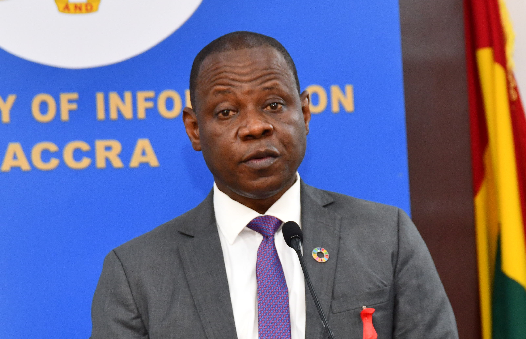COVID-19 spike: We’re not banning flights from red-zone countries – GHS
Ghana is not considering a ban on flights from countries with high infections as imported COVID-19 cases reach an “unprecedented rate”.
Director-General of the GHS, Dr Patrick Kuma-Aboagye, noted that the country did not have plans for such restrictions, but authorities would scale up prevention.
He was reacting to a letter by Frontier Health Services, which cited an “unprecedented” infection rate by arriving travellers at the Kotoka International Airport (KIA).
“We don’t see the need to ban any country from coming apart from enhancing our measures to prevent any excessive importing from any hotspot in any part of the world,” Dr Kuma-Aboagye stated.
He maintained that travel advice would be updated periodically, but flights would be accepted from every country.
The known strains in Ghana are the UK and African variants, with sequencing ongoing to establish the origin of the COVID-19 pathogens of the recent travellers who tested positive.
Dr Kuma-Aboagye, who spoke in a Joy FM interview monitored by theghanareport.com on Monday, April 26, said the positive cases had been isolated and undergoing monitoring.
He explained that the incubation period of the COVID-19 pathogen could make it undetectable at the early stages hence the arrival before detection.
For him, “the only way we can prevent it completely is to close the airport”, but that is not an option.
What was the concern of Frontier Health Services?
In a letter citing an alarming infection rate, the firm stated that 120 cases had been recorded from travellers entering the country within four days.
“On April 24, a total of 75 positive cases were recorded, exceeding the previous rate of 45 cases recorded on April 21 on arrival at the airport,” the Managing Director of the company, Dr Kudzo Seneadza said in a letter addressed to Ghana Airport Company Limited (GACL) and the Ghana Health Service.
Several protocols have been instituted to reduce the probability of infections.
Key amongst them is the travel guideline, which included two compulsory COVID-19 tests – a Polymerase Chain Reaction (PCR) test at the country of origin and an initial $150 antigen test on arrival at the Kotoka International airport – before travellers are allowed into the country.
Frontier Health Services, which undertakes such tests at KIA, called on stakeholders “to implement stringent measures on the quality of PCR test results acceptable for entry into the Republic of Ghana”.
They called for the implementation of new guidelines to curtail the influx of positive cases into the country.
Reaction by minority
The development drew a swift response by the Minority in Parliament, calling on the government to act.
The Ranking Member on Parliament’s Health Committee, Kwabena Mintah Akandoh, proposed a ban on countries with high infection rate to prevent local spread in communities.
The minority further outlined several concerns.
These included an authenticity of the PCR test results carried by infected travellers coming into the country, the safety protocols instituted at the various airports that travellers may have used before arriving in the country and measures to ensure the safety of immigration and other officials working at KIA.
The minority insisted that a determination must be made on how many travellers could pass through the first screen procedure of a PCR test at their country of origin and land in Ghana having a COVID-19 infection.
“The government should also consider a careful examination of the data and, where necessary, impose travel restrictions from regions that have travellers presenting fake or poor test results.
“Government should also consider travel restrictions on countries currently experiencing high COVID-19 infection rates to reduce the possibility of importing COVID-19 infections into the country,” the minority proposed.
With the recent spike in India, many countries, including the US, UK, Kuwait, France and Canada, have banned flights from the populous country.
Not only are other countries worried over the rising infection, but the “double mutant” virus being found in the country.
India’s situation could affect global vaccinations as major pharmaceutical firms such as AstraZeneca, having their production cited in the country.
The rate of infections could affect the workforce, reducing the number of vaccines produced for exportation across the globe.



